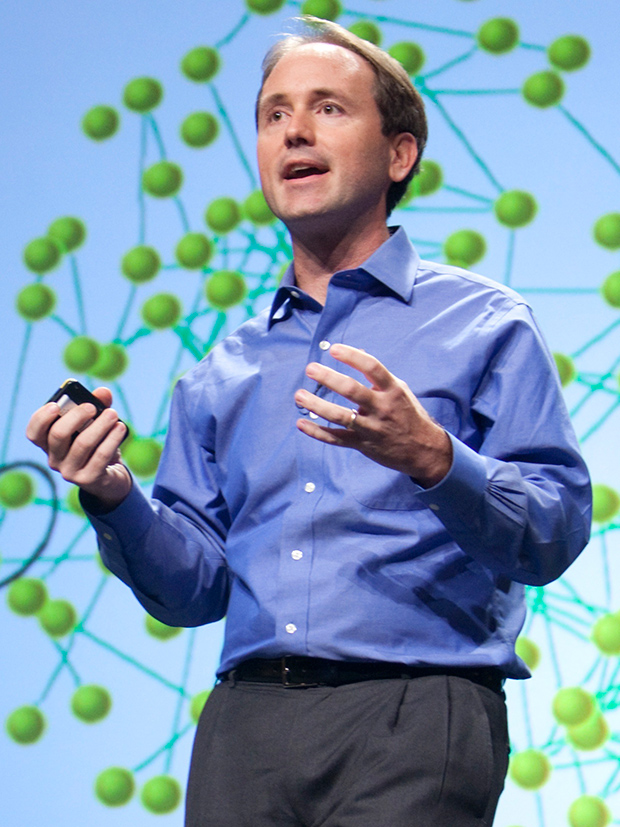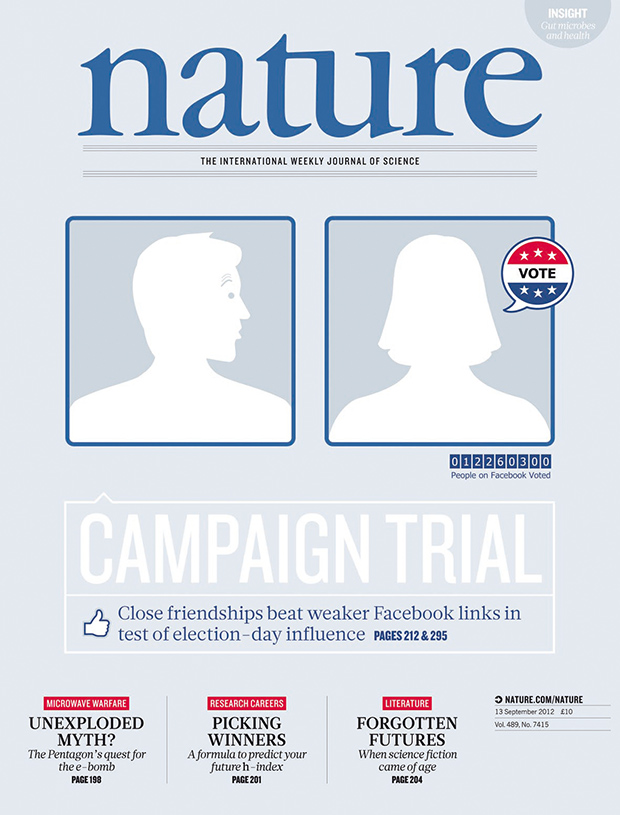By:
- Inga Kiderra
Published Date
By:
- Inga Kiderra
Share This:
Poked to Vote

James Fowler, UC San Diego professor of political science in the Division of Social Sciences and of medical genetics in the School of Medicine.
If you logged into Facebook on Election Day 2012, you may have seen – along with political rants and raves from your friends (and pictures of cats) – a nonpartisan message from Facebook at the top of your newsfeed, urging you to vote or to be a voter. Or, if you happened to be in the control group, you may have seen no voting message from Facebook itself. Either way, if you logged in from the United States, you were part of a project to increase democratic participation, led by UC San Diego’s James Fowler.
Fowler, a professor of political science in the Division of Social Sciences and of medical genetics in the School of Medicine, was following up on the randomized controlled 61-million-person experiment he and colleagues had run on Facebook two years earlier, during the U.S. congressional elections of 2010.
The 2010 experiment, published as the Sept. 13, 2012 cover of Nature, estimated that a single Facebook message seen on that Election Day caused about a third of a million more people to show up at the ballot box. It confirmed that peer pressure helps get out the vote – and demonstrated that online social networks can affect important real-world behavior.
Seeds of Persuasion
Importantly, it also showed that most of the effect came not from the message itself but through the influence of friends. And not just any friends: Close friends mattered most.
“Social influence made all the difference in political mobilization,” Fowler said. “It’s not the ‘I Voted’ button, or the lapel sticker we’ve all seen that gets out the vote. It’s the person attached to it.”
That first study was widely covered by national and international press. NPR, New York Times, BBC, Washington Post, Los Angeles Times, CNN.com, AP, Politico, Financial Times, the Atlantic and PBS NewsHour, among many others, all reported on the findings. You can also read more about it on the UC San Diego News Center.
In the 2012 experiment, Fowler and colleagues, including UC San Diego psychologist Chris Bryan, were exploring what sorts of messages might work best to increase democratic participation. They were also checking whether certain kinds of people are most influential in the process. Stay tuned for results.
Meanwhile, Fowler – recently named one of TechCrunch’s “Most Innovative People in Democracy” – is continuing to study social-network effects on a whole host of other behaviors and phenomena. Though his findings have sometimes made the monologues of late-night comedians, Fowler doesn’t do his work for chuckles. Rather, he’s looking both to advance our basic understanding of human beings – and to inform the policy decisions we make. But if the second book he’s now writing – like “Connected,” also with Harvard’s Nicholas Christakis – lands him another spot on The Colbert Report, he won’t complain.
Share This:
You May Also Like
UC San Diego is Strengthening U.S. Semiconductor Innovation and Workforce Development
Technology & EngineeringStay in the Know
Keep up with all the latest from UC San Diego. Subscribe to the newsletter today.




